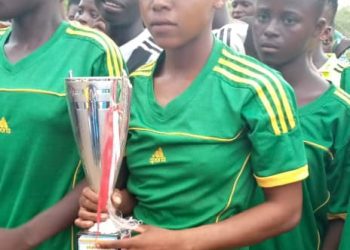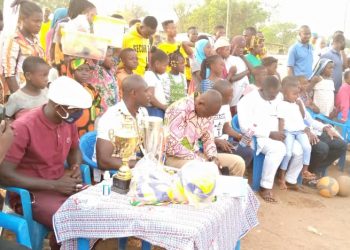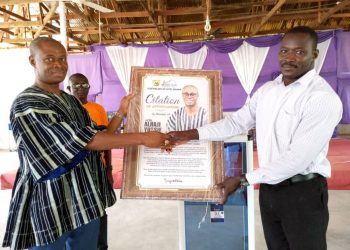
The Vaglas in Bole, Sawla-Tuna-Kalba and Damongo districts are slated to celebrate this year’s Fire Festival (Dzimbenti or Jintigi) between Wednesday 18th August, 2021 and Friday 20th August, 2021.
The traditionalists and customary people such as the Vaglas, Chorrs and Safalbas of these districts, will be celebrating the annual festival this year between Wednesday to Friday.
During this period, Vaglas in particular, with homes and families especially prepare foods and serve their ancestors dubbed Lalaakuu (Ancestors TZ).
They believe that ancestors hear and live within us even when we don’t see them. Their eating or not eating dish served them in Jintigi (fire-festival) suggests how happy it is between the dead and living.
Fire-festival is highly celebrated in other communities and tribes especially in Northern Ghana and in neighboring Burkina Faso and Ivory Coast, but its time and intensity varies from one ethnic group, tradition/culture to the other.
The more a tribe or ethnic group is traditional, the more intensified the celebration of the fire festival from community to community.
The period is used by families, communities and fetish priests to seal relationships between the living and the dead. Fetish Priests and family heads ask for favours of rains for farmlands and livestock, births, wealths, good omen and health for the living, till the time comes for each living to join the ancestral world.
During this time, indigenes home, far or near, come. Those unable to come home, send supports for items to cook and prepare for their ancestors ‘Lalaakuu’ (Ancestors TZ).
The Lalaakuu is often used to remind the dead of how valuable their assistance are to they the living. And used also, to further ask for more protection spiritually against spirits and principalities that may rise against a living soul of the family or any member of the family or home.
Growing up in Tuna, the Vaglas during Jintigi, youths of Tuna, especially Vagla youth in Tuna (both males and females), go naked at night, reaching out to the gods of the lands, at each location of deities , with canes , whipping intermittently to ignite the gods up for more protection, favors and good will.
These youths also light heaps of firewoods, and throw the burning woods , onto trees and shrubs, especially those found within communities, chanting words of prayers and good wills to their families, communities and lands.
Starting 2008, when Tuna was connected to the national grid, it further modernized the celebration with limited aspect of the going naked at night. But all other aspects still intact.
Funfair accompany the celebrations in almost all communities.
You may love to passby a Vagla community in Bole, Sawla-Tuna-Kalba or Damongo districts, to have a feel of a ‘Lalaakuu’ (ancestors tz) .
Ayekoo and happy New Year to all, especially to those celebrating this year’s Jintigi in my district; Sawla-Tuna-Kalba district. Wishing you all the best of news in your ‘Lalaakuu’ outcome.
The writer is _a native of Tuna in the Sawla-Tuna-Kalba district of the Savannah Region, loves creating, webs app developer, a Communication Strategist, an NIA Biometric & Technology officer – a field Technician of Ghana Card project (Nationwide registration ), IT enthusiast and a proud Ghanaian.









